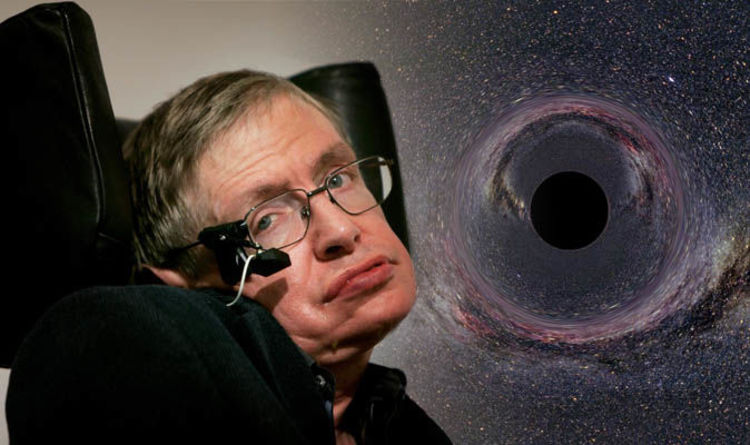Welcome to Learn to Astronomy! In this article, we will delve into the captivating history of **who discovered black holes**. Join us as we uncover the groundbreaking contributions of astrophysicists who paved the way for our understanding of these enigmatic cosmic phenomena. Get ready for an enlightening journey through the realms of space and time. Let’s explore!
1. The Pioneers of Astronomy: Unveiling the Discoverers of Black Holes
The pioneers of Astronomy have played a crucial role in unveiling the discoverers of black holes. These brilliant minds have made groundbreaking discoveries that have revolutionized our understanding of the universe. Their relentless pursuit of knowledge has led to the identification of these mysterious cosmic entities, which were once considered hypothetical.
Albert Einstein, with his theory of general relativity, provided the foundation for the existence of black holes. His equations predicted their formation and properties, setting the stage for future astronomers to confirm their existence.
Karl Schwarzschild was one of the first to apply Einstein’s equations to black holes. He derived a mathematical solution that described a non-rotating black hole, now known as the Schwarzschild black hole.
Jocelyn Bell Burnell made a significant contribution to the field by discovering pulsars, which are rapidly rotating neutron stars. These compact objects were initially thought to be potential candidates for black holes until further research revealed their true nature.
Stephen Hawking made groundbreaking discoveries in the study of black holes. He proposed the Hawking radiation, which states that black holes can emit particles and eventually evaporate over time. This concept challenged the traditional belief that nothing could escape a black hole’s gravitational pull.
Andrea Ghez and Reinhard Genzel have made remarkable strides in observing and confirming the existence of supermassive black holes at the center of galaxies. Their pioneering work utilized advanced astronomical techniques and technologies to observe the motions of stars near these cosmic beasts.
These are just a few examples of the remarkable individuals who have dedicated their lives to exploring the mysteries of the universe. Their contributions have not only advanced our understanding of black holes but also inspired future generations to continue pushing the boundaries of Astronomy.
Michio Kaku: “The Big Bang Was Wrong – We live Inside A BLACK HOLE!”
[arve url=”https://www.youtube.com/embed/a2x3QpP5t2s”/]
James Webb Telescope Just Announced The True Scale Of Black Hole
[arve url=”https://www.youtube.com/embed/5Gg86UCtHVw”/]
Frequent questions
Who first theorized the existence of black holes in astronomy?
The existence of black holes in astronomy was first theorized by physicist John Michell in 1783. He proposed that there could be objects with such strong gravitational forces that even light could not escape their pull. However, it was physicist Albert Einstein who developed the modern theory of general relativity, which provided a more comprehensive understanding of black holes. Einstein’s equations predicted the existence of black holes as regions of spacetime with such intense gravity that nothing, including light, could escape their gravitational pull.
Who is credited with the discovery of the first black hole?
Karl Schwarzschild is credited with the discovery of the first black hole. In 1916, he found a solution to Einstein’s field equations of general relativity that described a region of space-time from which nothing could escape, not even light. This region is now known as a black hole. Schwarzschild’s work laid the foundation for the study of these mysterious objects.
Which astronomer conducted the pioneering research that led to the confirmation of black holes in the universe?
The pioneering research that led to the confirmation of **black holes** in the universe was conducted by the astronomer **Dr. Karl Schwarzschild** in 1916. He derived a solution to Einstein’s field equations, known as the Schwarzschild solution, which described a gravitational radius beyond which no light could escape. This region is now known as the event horizon of a black hole.
In conclusion, the discovery of black holes has been a fascinating journey in the field of Astronomy. While several astrophysicists and scientists have contributed immensely to our understanding of these enigmatic cosmic objects, it was Karl Schwarzschild who first mathematically predicted their existence in 1916. The subsequent work of Subrahmanyan Chandrasekhar on white dwarf stars provided further support for the existence of black holes. However, it wasn’t until the 1960s that black holes were truly acknowledged and named as such by John Wheeler. Since then, extensive research and technological advancements have allowed us to detect and observe these celestial entities, revolutionizing our understanding of the universe. Today, black holes continue to captivate scientists and researchers, offering intriguing opportunities to study the nature of space, time, and gravity. As our knowledge expands, we can only look forward to uncovering more mysteries surrounding these cosmic wonders.

